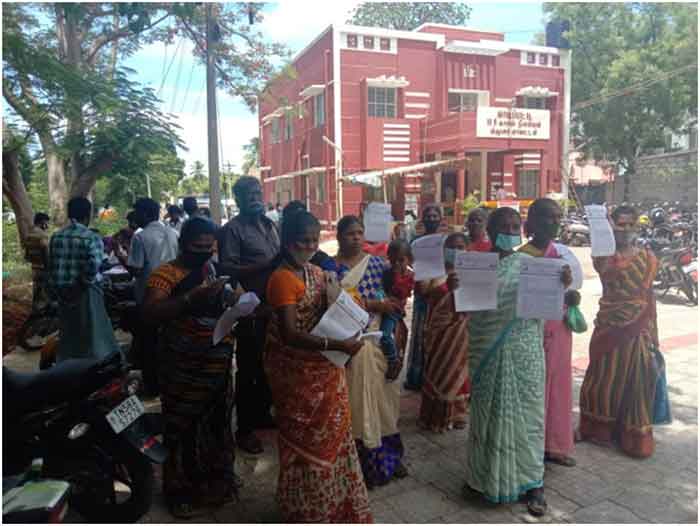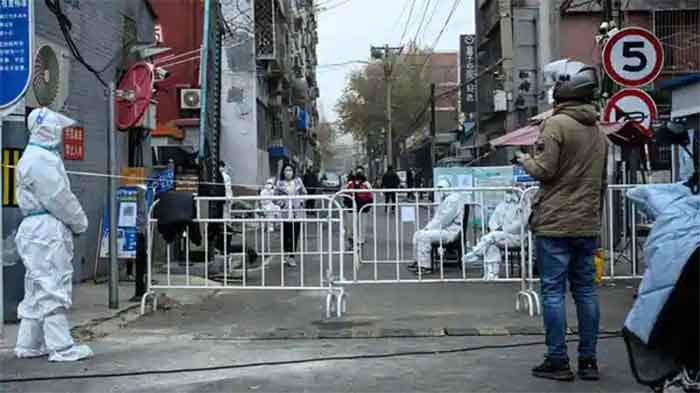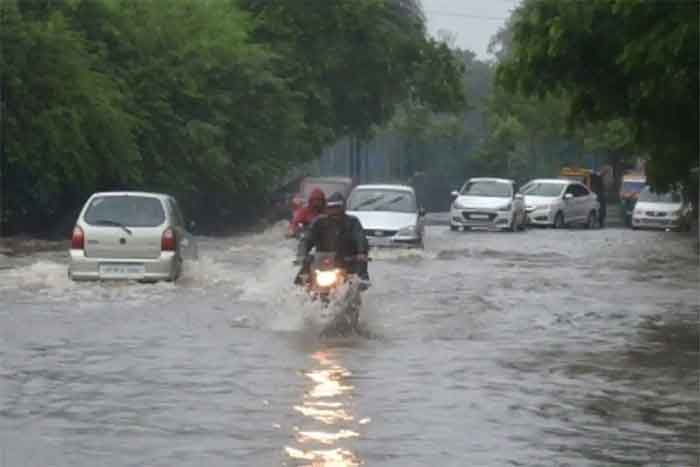
Chennai: As I complete my long discussion with Muthukumar, he politely asks me if he can ask me a question.
“Please do” I say and he asks “Sir, I had mortgaged my wife’s jewels with a private lender only recently, now I have no job .Will they give me any waiver for I cannot pay the dues?”.
His question comes from the deep-seated fear that he will not be able to repay the loan if the interest mounts. His monthly due is Rs 14,000 on a Rs 120,000 loan.
He and his wife worked at a textile mill in Tirupur, known globally for its vast garments export business. For 12 hours of works they were paid Rs 500, and given a house to stay. Even without the lockdown, it would have been a miracle if he had managed to pay his debt on time. But with the lockdown, they lost all their income.
“This time, my owner decided to send us all back as soon as the lockdown was announced in April” said Muthukumar.
His voice reveals the anxieties of many a labouring family in rural Tamil Nadu.
 When asked about the lockdown last year, Muthukumar said “last time, our owner had retained us for some time. he gave us rations and even paid for the accommodation.But soon he could not manage and had to send us back. So this time he sent us as soon as lockdown was announced. It has been a month without work.”
When asked about the lockdown last year, Muthukumar said “last time, our owner had retained us for some time. he gave us rations and even paid for the accommodation.But soon he could not manage and had to send us back. So this time he sent us as soon as lockdown was announced. It has been a month without work.”
He and his wife were last paid for April. He had also taken a week’s pay as advance. They don’t get paid for the lockdown period.
“If we work, we get paid, even on normal days we don’t get paid when there is no work. It’s a daily wage system” he says.
Muthukumar has returned to Vadipatti near Madurai. His family lives in their ancestral home with his mother and his brother’s family. His brother, working in a car paint shop in Coimbatore, is also back as he also was laid off.
“All our money was spent over the month. For the next month, we have to depend on our mother’s savings. She earned money in the ‘100 days work scheme’ (NREGA). We have to live off that.” Even the NREGA work has been stopped since the 2nd wave of COVID broke out.
Muthukumar’s story is not unique. All across rural Tamil Nadu, many have returned home as jobs disappeared in the cities yet again due to rising Covid cases and lockdown fears. The Center for Monitoring Indian Economy data on unemployment clearly reveals the steep rise in unemployment in May this year. The organized sector employs only around 7% of Tamil Nadu’s total work force with the rest being in unorganized sector.

The situation of Ponamma, who lives near Alagar Koil in Madurai District and whose family used to work in a brick kiln in Coimbatore is similar to that of Muthukumar. She and many of her colleagues were asked to leave three months ago, as work was limited. Now she and her family are facing acute financial distress, as they cannot find work even in their native places.
“We have mortgaged all our jewels, we have even mortgaged our house just to survive these few months. If we try to go out to find work, the police stop us and treat us very badly. So my husband and my son don’t venture to find work,” she said.
The Rs 2000 handout from the government has helped her a bit in tiding over a month’s expense. She has no doubt though, if the lockdown continues and jobs don’t open up, her family will be in a dire condition. She is also extremely anxious about catching Covid.
“The local officials have visited us and given us instructions about cleaning our hands and wearing masks. We don’t go out much. If we have fever or cough, we have to go to the hospital (Primary Health Center). It is about 1km from here” she said.
Many youth have returned to their native villages due to the factory closures. Many have lost jobs even in the local establishments, as hotels, shops and other services were forced to close down. With the stoppage of work under NREGA, the only available work is as agricultural labour, but such work is not available across all districts.
According to Ilaya Raja, district secretary of CPIML (Liberation), while there was a fair availability of agricultural work in Theni district, in other places, including the delta region, agriculture is not capable of absorbing all the excess workers from non-agricultural sectors. Muthuraku, from Vadipatti, who raises cows along with her sons says that most of the lands have been sold and the topsoil removed for other uses. Now even the rock is being quarried for sand and other uses.
“Forget agriculture, we find it tough to graze our cattle in these quarried lands”, she says.
In the Thanjavur delta regions agriculture is mechanised so much that it does not absorb a lot of labour. Many youth have to travel far, even to Kerala and other states to find jobs. With borders closed, and cities shutting down, many have returned home now.
Like last year, this entire year too may be lost in paying back the dues, debt and interest they incur while managing expenses during these lockdown days. The dominant sentiment among workers is that the lockdown will bring more ruin to families than Covid.
“Whether or not we die of Covid, we shall certainly die of starvation if the lockdown continues and we don’t get jobs” was echoed by many workers we interviewed.
Most of the low income families have received Rs 2000 from the Tamil Nadu Government for the month of May, and have been promised another instalment in June. However, these minimal cash transfers will not help them pay their rental dues or loan instalments, which run into several thousand rupees a month.
Unless the government makes a commitment to transfer basic income support for an extended period, the uncertainties will force people into extreme debt.
The Unorganised Workers Federation, which represents non-farm workers including construction workers, vendors and other informal workers in Tamil Nadu has written to the Chief Minister and the Prime Minister, demanding that all working families be provided Rs 10,000 a month. It has also demanded a one year moratorium on repayment of formal and informal debt, interest waiver and additional support to meet rental costs.
In Tamil “Thozhilalar” means “Workers” and “Koodam” means “Space” or “Forum”. The objective of the Thozhilalar Koodam blog is to be such a space for workers to share information, interact, discuss, debate and engage in collective action.
GET COUNTERCURRENTS DAILY NEWSLETTER STRAIGHT TO YOUR INBOX













































